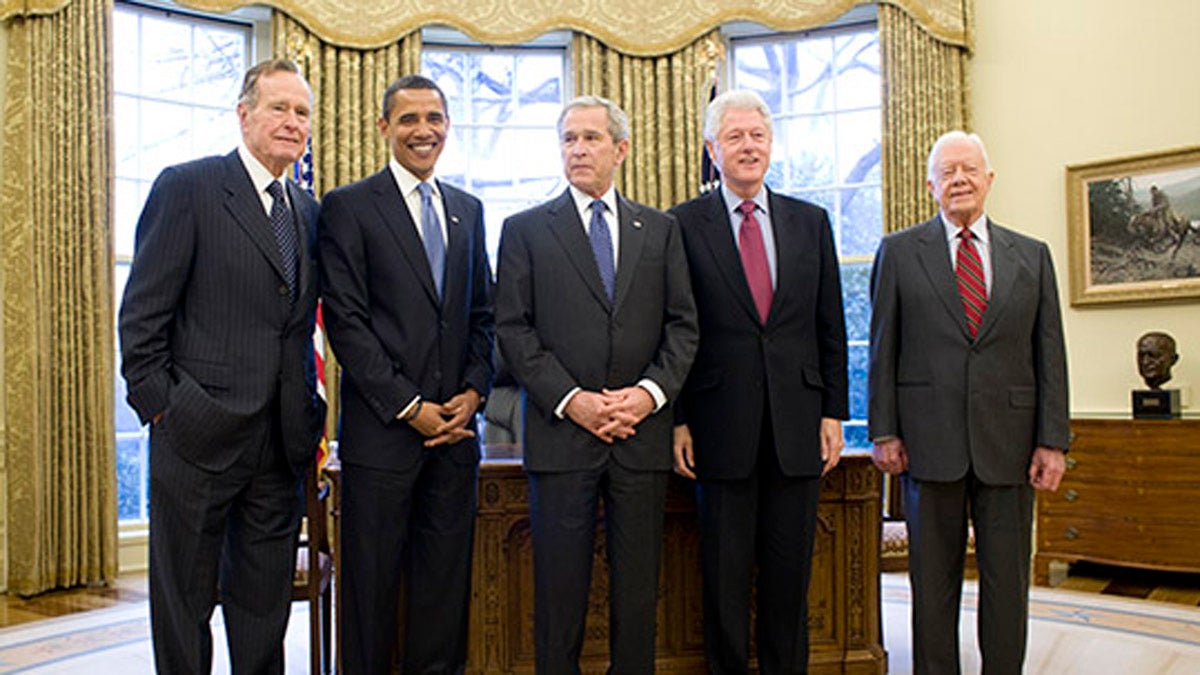Being a world leader may be hazardous to your health
Listen
Former presidents of the United States
We have all seen enough “before” and “after” pictures of American presidents to understand that being the most powerful person in the world can really take a toll on your youthful looks. But, does being a world leader really hasten the aging process, and shorten a person’s lifespan?
Anupam Jena of Harvard Medical School set out to get some answers. He analyzed historical survival data on elected world leaders and their runner-up candidates in parliamentary or presidential elections in 17 countries, including Australia, the United Kingdom, and the United States, from 1722 to 2015.
Comparing 250 world leaders and their runner-ups over this time period, Jena found that world leaders live 2.5 years less than their never-elected political peers.
“That is quite a bit,” said Jena. “If you think about how much progress we have made in terms of life expectancy, 2.5 years represents almost a decade worth of gains in health care.”
Jena believes that the stress of governing, and the stress of being in the spotlight is the likely culprit. World leaders are also very busy, which limits how much time they can invest in their health.
Listen to the full interview above.
WHYY is your source for fact-based, in-depth journalism and information. As a nonprofit organization, we rely on financial support from readers like you. Please give today.




